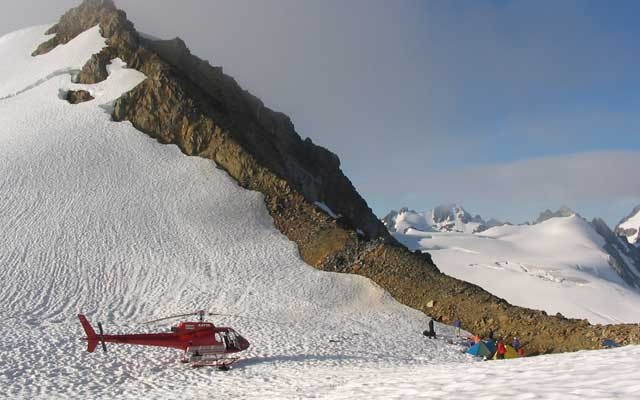The head of Whistler's Search and Rescue (SAR) team isn't convinced specialized volunteers in high volume teams like his need to be paid for their services.
"I think we would need to have more dialogue with the rest of the province's SAR teams before I could support something like that," said Brad Sills, in the wake of a call from his North Shore counterpart for overhauls to the provincial search and rescue model that includes standby remuneration for some members.
That's just one of the suggestions from longtime North Shore SAR volunteer Tim Jones to manage a system facing increasing pressures year-over-year, as more people head into the backcountry.
"If you want that availability seven days a week (the ability to do a long line helicopter rescue), you're going to have to provide some incentive for them just beyond volunteerism to be available," said Jones. "Maybe there's a formula of standby pay for those specific individuals."
Jones calls B.C.'s model, made up of 3,000 volunteer members who respond to roughly 1,200 calls a year, "unsustainable."
His solution involves three critical areas: communication, remuneration and access to dedicated helicopters.
"I don't present a perfect solution but we've got to start having some dialogue in this province where we're going to go because the current model isn't working," said Jones.
He is calling for B.C. Search and Rescue to have its own mountaintop communication system as opposed to the current patchwork system of borrowing from other agency's radio repeater towers or using portable repeaters.
He would like to see helicopters on stand by for search and rescue teams during peak period times.
And he would like to see specialized members in the high-volume teams given standby pay during the busy months.
"That's not our model right now and it has never been our model," said Don Bindon, president of BCSAR. "We have always operated on an unpaid professional basis and still do today.
"We have for decades been asking volunteers to do this and they continue to do this... I haven't had anybody turn down a call yet."
Sills said the Whistler team has never had an issue accessing helicopters for rescues and while there are always issues around communications, his team has found ways to work around the blackout areas.
"Personally, I don't think that the model is unsustainable. I think it may be stressful at times," said Sills.
"My take on it is search and rescue work is cyclical and there's no predictability to it. We have at times done 68 calls in a year. Our average is typically around 30, and we tend to hang around the 30 mark, but every once in a while it spikes."
For example, July for Whistler SAR was quite busy; August, on the other hand, has dropped off. The team is responding on average to one call a week right now, like Saturday's call to Garibaldi Lake for a hiker having a heart attack.
"In the 35 years I've been doing this, these periods come and go," said Sills.
Jones, however, isn't airing his concerns about the system lightly. It's based, he said, on his decades of volunteer work with SAR. He admits "embarrassingly" that he puts in on average 50 volunteer hours a week with North Shore SAR. He loves his job. The question is: is it sustainable in the long term?
"This is not just a few million (dollar fix)," said Jones. "This is quite a bit of money over a period of time to change this around so we can actually meet the capability expectations that people really want to see from us."
Stats over the last five years show that SAR's call volume has been going up slightly every year, said Ian Cunnings, search and rescue specialist with Emergency Management BC.
Last year the province contributed $7 million in operational and training dollars to the SAR program.
While he hasn't received a formal proposal from Jones, Cunnings said the province welcomes having the conversation.
"We are very much open to working with the BC Search and Rescue Association to look at the existing funding model and how we might be able to provide improvements to how we provide support to the BC Search and Rescue groups," said Cunnings.
That dialogue is just what Jones is hoping can spark change.
"Where it goes from here I don't know," said Jones. "But at least I have a clean conscious on my part that I raised the issue and we'll just see what happens."




